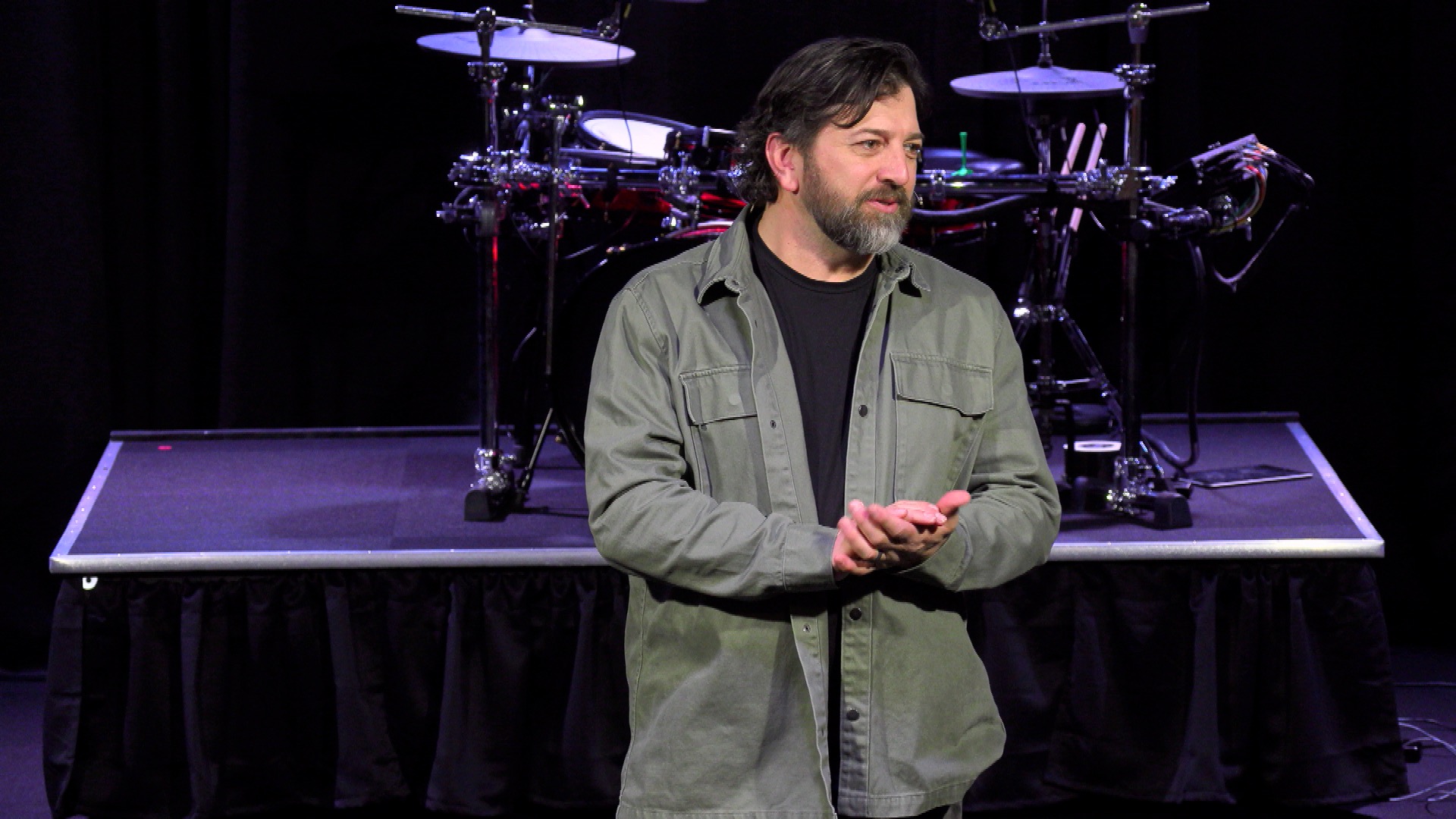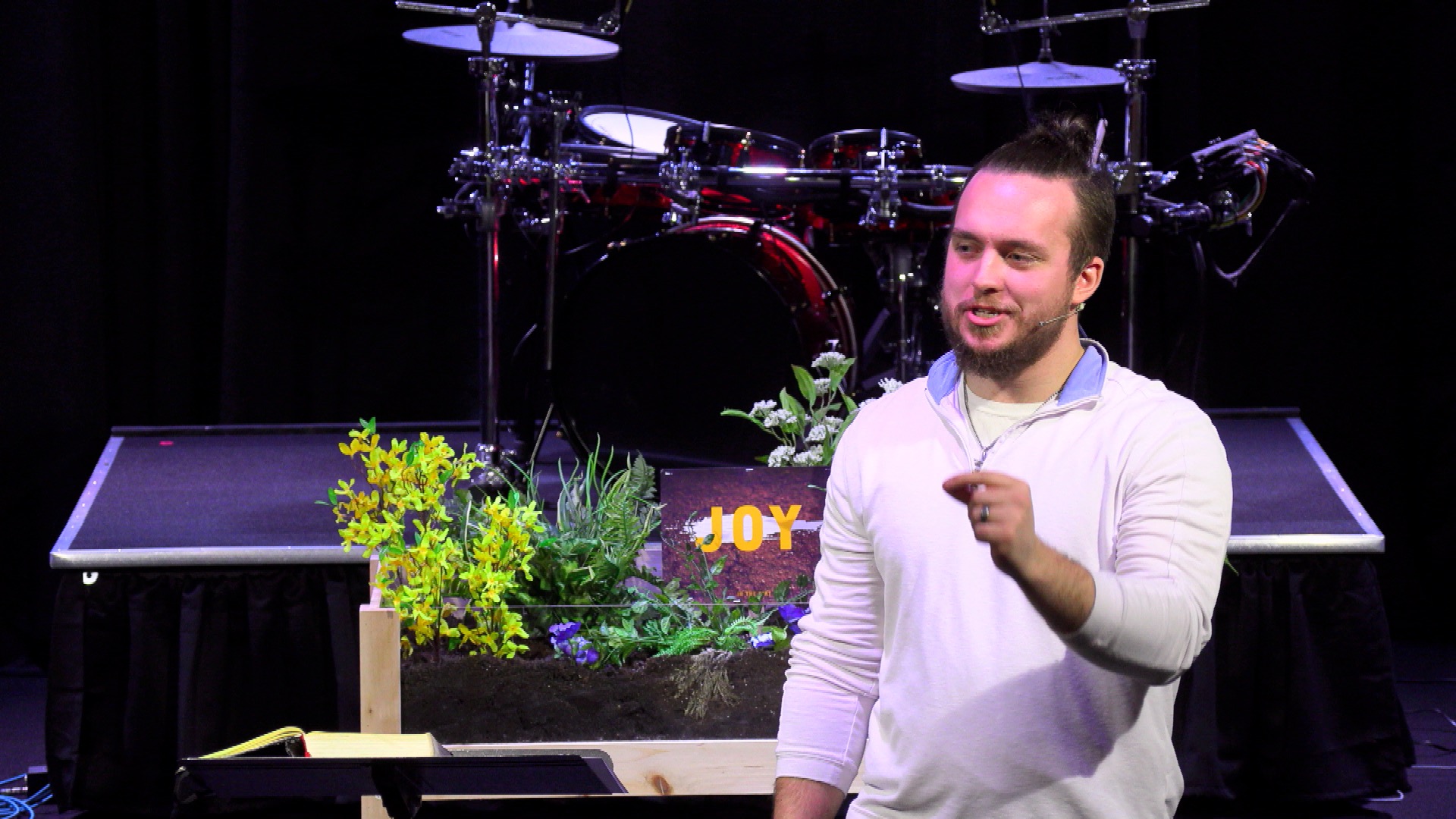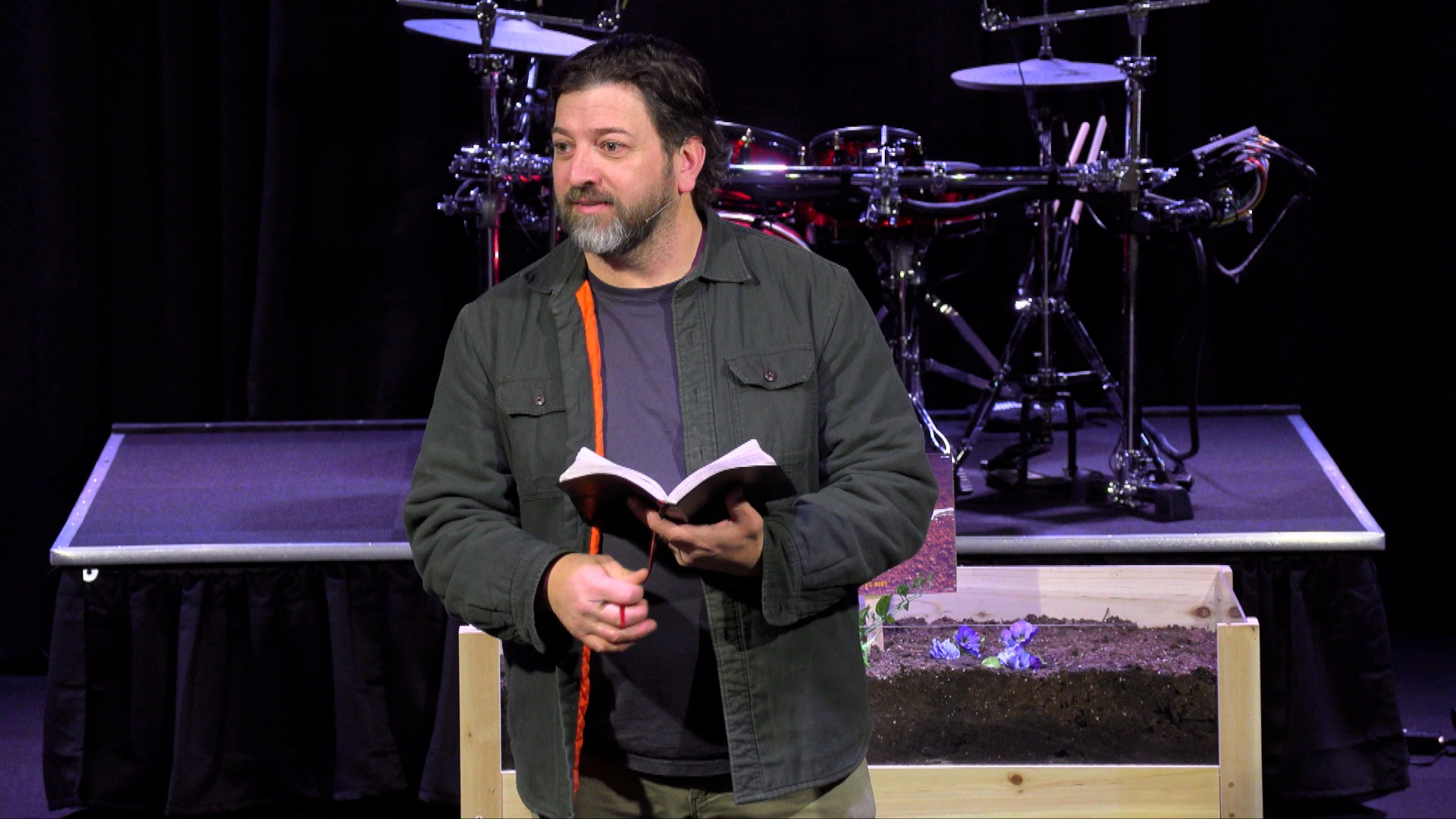Grace Orwigsburg
Sundays @ 9:00 and 10:30am
Grace Tremont
Sundays @ 9:00am
Grace Online
Sundays @ 9:00 and 10:30am
Experience the Hope of GOOD FRIDAY AND EASTER at Grace Free Church
Faith That Sees
- November 09, 2025 / Joshua Ott
Ten men with leprosy cry out to Jesus from a distance, and He tells them to go show themselves to the priests—before they’re even healed. As they walk, healing comes, but only one, a Samaritan, returns to thank Him. The story reminds us to stop seeking Jesus just for what He can do and start seeing Him for who He is. Real faith calls out, obeys before results, responds with gratitude, and lets Jesus make us whole inside and out.
KEY VERSES:
- Luke 17:11–19
- Leviticus 13
- Leviticus 14
- Jeremiah 29:11–13
- Proverbs 3:6
- Matthew 5:45
HIGHLIGHTS:
-
A. The setup: distance, pain, and a long shot (Luke 17:11–13)
- Jesus is traveling along the border between Samaria and Galilee (Luke 17:11).
- Ten men with leprosy meet Him, but have to keep their distance because they’re considered “unclean” (Leviticus 13–14).
- Leprosy means:
- Cut off from family, friends, and normal life.
- Forced to shout “unclean” everywhere they go, which eventually sinks into how they see themselves.
- They feel far from people and far from God.
- Still, they call out: “Jesus, Master, have pity on us!” (Luke 17:13)
- Big idea: Faith that sees starts by calling out to Jesus instead of pretending we can fix ourselves.
-
B. Obedience before results (Luke 17:14)
- Jesus doesn’t walk over, touch them, or give a big speech.
- From a distance He simply says, “Go, show yourselves to the priests” (Luke 17:14).
- That’s what the Law required when someone was healed (Leviticus 13–14), but they’re not healed yet.
- They have every reason to think, “Are you serious? Nothing has changed.”
- But they go anyway—and as they went, they were cleansed (Luke 17:14).
- Big idea: Most of the time, healing and change come while we’re walking in obedience, not before.
-
C. One comes back: seeing Jesus for who He is (Luke 17:15–16)
- All ten are healed physically, but only one stops.
- He sees he’s healed, turns around, comes back to Jesus, and praises God in a loud voice (Luke 17:15).
- He throws himself at Jesus’ feet and thanks Him—and he’s a Samaritan, the last guy anyone expected to “get it” (Luke 17:16).
- Jesus asks, “Were not all ten cleansed? Where are the other nine?” (Luke 17:17)
- Key difference: The nine saw Jesus as a healer who helped them; the one saw Jesus as Lord who deserved worship.
- “Acknowledge him in all your ways and he will make your paths straight” (Proverbs 3:6).
-
D. Faith that responds in worship, not just relief
- The Samaritan doesn’t rush to get his “old life” back first.
- Reuniting with family, being cleared by the priest, getting his future back—those can wait.
- He prioritizes Jesus over the blessings.
- Big idea: Faith that sees doesn’t just say “thanks for the miracle,” it bows down in worship.
-
E. Two kinds of “healed”: clean vs. whole (Luke 17:17–19)
- All ten were “cleansed” physically (Luke 17:14) – their skin disease was gone.
- But to the one who returned, Jesus says, “Rise and go; your faith has made you well” (Luke 17:19).
- That phrase points to something deeper—salvation, restoration, wholeness, not just a better body.
- You can experience God’s help in your life and still feel empty inside if you never actually come to Him.
- God doesn’t just want to fix your situation; He wants to heal your heart and make you whole (Matthew 5:45).
-
F. What “faith that sees” looks like today
- It calls out to Jesus honestly, not pretending to have it all together.
- It obeys before the outcome is visible.
- It comes back to Jesus with gratitude instead of just moving on with life.
- It worships Jesus for who He is, not only for what He can do.
- It lets Him deal with the inside stuff, not just the outside problems.
- “You will call on me and come and pray to me, and I will listen to you… you will seek me and find me when you seek me with all your heart” (Jeremiah 29:11–13).
TALK ABOUT IT:
- Where in your life do you feel “at a distance” right now—far from people, far from God, or far from where you hoped you’d be?
- What’s one area where you’ve been waiting for God to act before you obey, instead of obeying while you wait?
- When have you seen God “heal you on the way”—changing you or your situation slowly as you kept walking with Him?
- If you’re honest, do you relate more to the nine who moved on with their lives or the one who came back to say thank you? Why?
- What does it practically look like for you to see Jesus for who He is, not just for what He can do for you?
- Is there a place where you’ve experienced God’s help, but still feel empty on the inside? What might it mean to let Him make you whole there?
- How could you build simple habits of gratitude and worship into your week so that you “come back” to Jesus regularly, not just in emergencies?
APPLY IT:
- Call out instead of powering through. When you feel stuck, anxious, or “unclean” on the inside, actually say, “Jesus, I need your help,” instead of just trying harder.
- Take the next step of obedience even if you don’t see change yet. Apologize, forgive, show up, serve, give, or have the hard conversation before everything feels fixed.
- Notice where God has already moved. Pause and identify “as they went” moments in your life where God has been healing or helping you over time.
- Come back and say thank you. Make a short gratitude list this week of things God has done, and actually thank Him for each one.
- Shift from “what can I get?” to “who is He?” In prayer, spend some time just telling God who He is (good, faithful, patient) instead of only asking for things.
- Practice worship in the middle of the mess. Don’t wait for everything to be perfect—worship through the stress, the uncertainty, and the in-between.
- Let Jesus into the deeper stuff. Ask Him not only to fix your circumstances, but to deal with the fear, shame, or loneliness underneath.
- Make obedience a rhythm, not a one-off. Keep walking—day after day—in the direction you sense God is leading, and trust that He’s working as you go.




Born and raised in Schuylkill County, Josh is passionate about Grace being a church that reaches the entire county. He drives the vision, content, clarity, and leadership cohesion at our church. Josh loves old Harleys, fly-fishing, and Philly sports, but not nearly as much as a he loves spending time with his family.